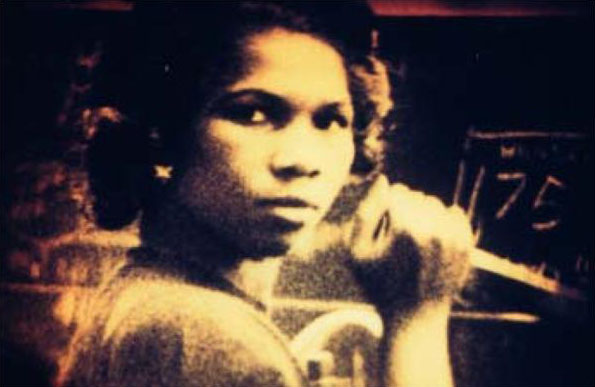
11 May 2012, Khiasma, Paris.
In the context of ‘Occupation. Festival of Living Literatures and Words’ and the exhibition ‘Les Nouveaux Mondes et les Anciens: Un envoutement de l’histoire’.
Black Audio Film Collective / John Akomfrah
Handsworth Songs
GB, 1986, 16mm, color & b/w, English spoken, French subtitles, 60′
BAFC was a British collective of filmmakers active in the 1980’s and 1990’s who expressed their radical views on the post-colonial decline of the imperialistic world order, the disastrous socio-economic effects of Thatcher’s doctrine and the meaning of the diasporic condition in an evenly radical way. Handsworth Songs explores the origins of the riots in the Birmingham district of Handsworth, where the local black community rose against a political policy that they considered as a return to colonialism. In contrast with the didactic panoptic impulse of the documentary film tradition, filmmaker John Akomfrah chose an open, polytonic structure where eye-witness accounts, mediated voice-overs and a mosaic of sound, intersperse with a poetic montage of archive footage. The inherent historical discourses are dismantled, and in result the impressions of the past gain a new place in the constellation of the present, as a promise to the future. “There are no stories in the riots, only the ghosts of other stories”.
“The collective’s key work, Handsworth Songs (1986), is a succinct articulation of the dialectic of crisis and difference, and a critical primer – in artistic terms – of transnational post-colonialism. Though Handsworth Songs is an analytical essay on the cultural conditions under which young black men and women in Britain lived, and the racist policing tactics directed against them, the film, produced for Channel Four, did not merely reflect upon the structural violence of Thatcherism. In the aftermath of the protests in Handsworth, the film inhabits a different order of things: it is as much about elsewhere as about Britain. That elsewhere is the broader post-colonial world. This feeling of disjuncture is reflected not only in the jump cuts of the film’s narrative discontinuity – moving between archival photographs, newsreel fragments, media reportage, and on-site interviews – it is also deeply anchored by the sombre aural pulse, the disjunctive syncopation of the snare drum beat, the mournful reverb of the dub score that sustains a quiet rage. Though ostensibly addressing the issues of policing, Handsworth Songs reflects more profoundly the agency of the oppressed; it narrates their stories, not purely from the point of view of the event from which it derives its name, but equally through an archaeology of the visual archive of minoritarian dwelling in Britain. As is often the case in BAFC’s work, the ghosts of those stories inform the notion of a historically inflected dub cinema whose spatial, temporal and psychic dynamics relays the scattered trajectories of immigrant communities…” (Okwui Enwezor)
In the context of the research project “Figures of Dissent (Cinema of Politics, Politics of Cinema)”
KASK / School of Arts
Texts about Handsworth Songs by Salman Rushdie, Stuart Hall, Darcus Howe, Isaac Julien & Kobena Mercer can be found here.